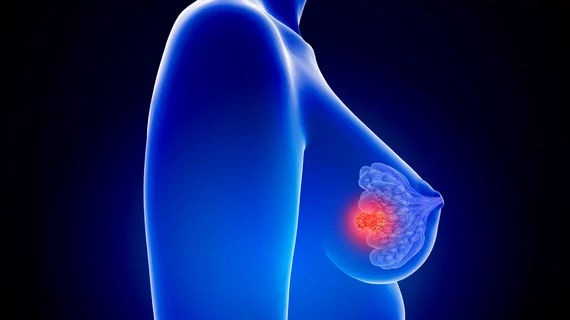60% of breast cancer survivors’ imaging care delayed due to COVID-19
Nearly half of breast cancer survivors in the U.S. experienced care disruptions during the beginnings of the pandemic, according to new research, exposing dangerous cracks in the nation’s healthcare system.
A group from the University of Illinois at Chicago surveyed more than 600 women for their study, published recently in Breast Cancer Research and Treatment. About 44% said they experienced delays in care, with follow-up appointments and diagnostic imaging two of the leading types of postponements.
"Overall, we see that there is a serious gap in disaster preparedness when it comes to providing critical and often time-sensitive care for breast cancer patients," Elizabeth Papautsky, PhD, assistant professor of biomedical and health information sciences at the UIC College of Applied Health Sciences, said Tuesday.
The investigators sent out their questionnaire to U.S. breast cancer survivor groups via social media and email, asking women who received a cancer diagnosis if their appointments were pushed back and, if so, what type of care was delayed. Between April 2 and 27, they received 609 responses. On average, women were 47 years old.
In total, 63% were receiving cancer care, with most claiming their routine follow-up visits were rescheduled (79%), followed by breast reconstruction surgery (66%), imaging exams (60%), and lab testing (50%).
Additionally, 30% experienced hospital or clinic-based cancer therapy stoppages, which included infusions (32%), radiation (30%), and surgery to remove a tumor (26%).
Papautsky and colleagues were surprised by a number of their findings, including the sweeping impact on all communities and the higher incidence of delays in younger patients. The latter may be attributed to delays in hormone therapy, which is typically administered to younger individuals, they noted.
"We expected the usual racial difference we see in healthcare, with Black patients being disproportionately affected, but our results showed that patients were universally affected by COVID in terms of delays in breast cancer care, likely because in those early weeks, hospitals and health care facilities were postponing visits and procedures across the board as they took on the growing burden of dealing with COVID-19," Hamlish added in a statement.
The authors pointed out that many women said their treatments were modified, rather than completely canceled.
Read the entire study here.

